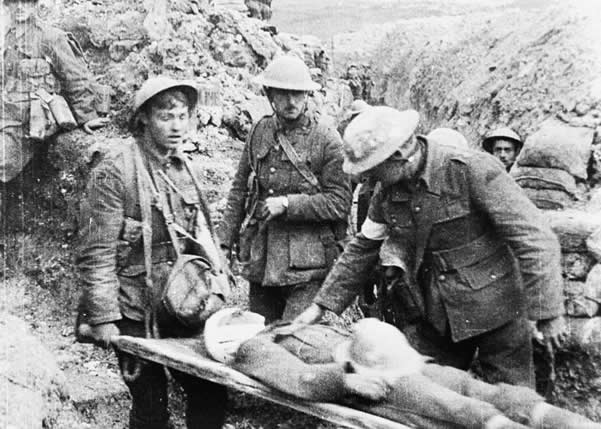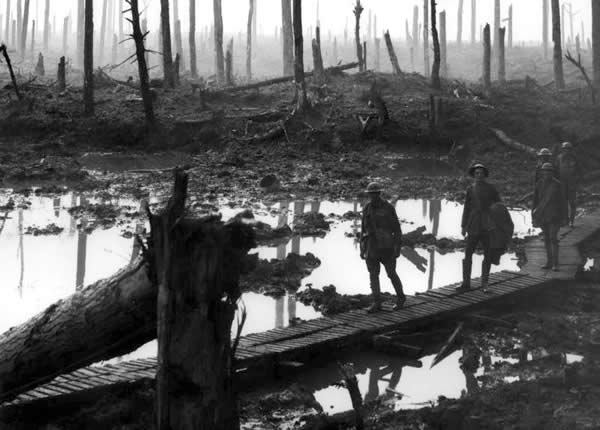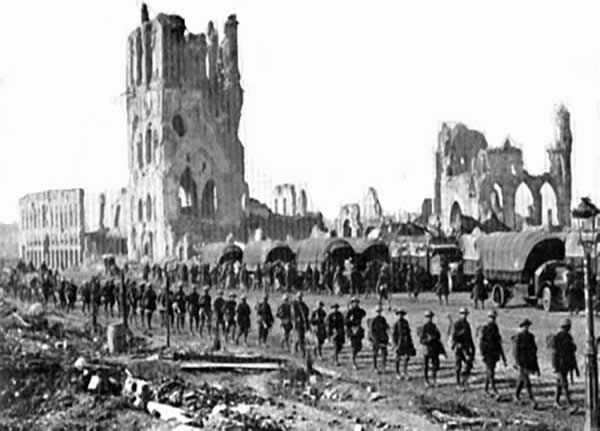1 Man from Lemsford Died in this battle - He was Robert Tims
General Sir Edmund Allenby entering Jerusalem Barely pausing for consolidation following the Battle of Mughar Ridge on 13 November 1917, British Commander-in-Chief Sir Edmund Allenby marched eastwards towards Jerusalem via the Judea Hills.
While his right headed for the Judea Hills his left force adopted a defensive posture at Jaffa, newly secured by the British. Allenby was nevertheless aware of the arrival of General Erich von Falkenhayn's Yilderim Force, markedly strengthening the Turkish lines from Jerusalem to the sea.
Falkenhayn lost little time in launching attacks from his Seventh Army, succeeding in greatly slowing Allenby's advance. It soon became apparent that Allenby would be unable to secure Jerusalem's fall without first consolidating his force. Both commanders had been specifically instructed of the necessity to avoid fighting either in or immediately around the holy city itself.
Having reinforced his front line force Allenby assigned the task of capturing Jerusalem to XX Corps under fellow cavalry officer Sir Philip Chetwode. Chetwode's attack consequently began on 8 December. The assault took two forms: a central thrust from Nebi-Samweil - a commanding series of heights some 13km to the west; and a secondary attack south at Bethlehem.
In the event the city fell after a single day's fighting, with morale in the Turkish opposition having plummeted in the face of continual British successes combined with the failure of Turkish counterattacks. Sporadic fighting nevertheless continued in the surrounding hills in the days following Jerusalem's fall.
Sir Edmund AllenbyDemonstrating a fine political sensibility Allenby chose to make his understated entrance into the holy city on foot on 11 December. (Click here to view the city's decree of surrender.)
Falkenhayn mounted a determined counter-attack on 26 December which was thrown back with heavy Turkish losses. Allenby's overall campaign had incurred casualties of some 18,000 men set against 25,000 Turkish losses.
The loss of Jerusalem constituted a grave setback to Ottoman prestige in the region and rendered nought the effective potential of Falkenhayn's Yilderim Force.
With Allenby having secured the British line from Jerusalem to the sea he had delivered upon British Prime Minister David Lloyd-George's instruction to take Jerusalem by Christmas with weeks to spare. News of its capture provided much welcome relief in Allied capitals in Europe, offsetting less satisfying news from Russia, Caporetto and Cambrai.
In the wake of Allenby's success the War Office in London postponed operations in Mesopotamia in preparation for a renewed offensive in Palestine.
Source firstworldwar.comCommonwealth War Graves
Lest We Forget
From 1914 to1918 97 men and one woman went to War - 20 men never came home. Read the life history of each man and learn where they died
Those Who Gave Their LivesLemsford local History Group WW1 Records
Memories & Letters
Memories from the people of Lemsford Parish – letters from the Front and home and much, much more
Local Parish Magazine
From the Bishop's Hatfield Parish Magazine 1914 to 1918, Church- Social - War Records
Servicemen of Lemsford
War records from 98 men who went to war. We show their memories images and why we should never forget them.
5 Facts the Great War
Battles of WW1

Battle of the Somme
1 July - 13 November 1916The British suffered around 420,000 casualties, the French 195,000 and the Germans around 650,000. Only in the sense of relieving the French at Verdun can the British have claimed any measure of success.

Battle of Passchendaele
31 July - 6 November 1917Passchendaele village lay barely five miles beyond the starting point of his offensive. Having prophesied a decisive success, it had taken over three months, 325,000 Allied and 260,000 German casualties

The First Battle of Ypres, 1914
October 19 to November 22, 1914First Battle of Ypres saw the BEF sustain 7,960 killed, 29,562 wounded, and 17,873 missing, while the French incurred between 50,000 and 85,000 casualties of all types. To the north, the Belgians took 21,562 casualties
